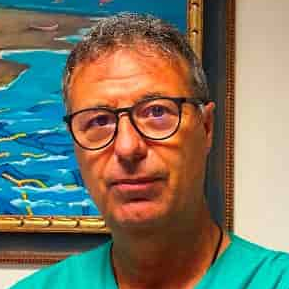Advances in Longevity Medicine
A special issue of Journal of Clinical Medicine (ISSN 2077-0383).
Deadline for manuscript submissions: closed (20 March 2024) | Viewed by 4983
Special Issue Editors
Interests: phlebology; lymphology; longevity and translational medicine; hormesis; psychoneuroendocrineimmunology; mitochondria
Special Issues, Collections and Topics in MDPI journals
Special Issue Information
Dear Colleagues,
Aging is a complex and multi-factorial set of bioprocesses that affect cells, tissues, and organs throughout the whole life of human beings. Humans' natural evolutive psychobiological degeneration is crucial in biomedical science.
It is known that cell senescence virtually contributes to all chronic degenerative diseases (CDD), thus to cardio- and cerebrovascular disease, diabetes and obesity, metabolic diseases, autoimmune diseases, neurodegeneration and psychopathologies, and cancer. In these patients, cell metabolism degeneration and the so-called inflammaging derived from chronic low–grade cell inflammation have been recognized as the fundamental culprits.
Unhealthy aging remarkably contributes to most modern diseases by reducing the individual’s adaptability to any stressors and through his/her loss of functions; interestingly, unhealthy aging represents a relevant risk factor for most communicable diseases, as shown in COVID-19, for example.
The literature data have clearly demonstrated that genetics play a minor role in the onset and evolution of aging-related diseases, whereas conversely, epigenetics and psychosocial factors are pivotal. In line with this evidence, longevity medicine may consequently intervene in a multi-modality mode on all those modifiable epigenetic factors at the root of most CDD.
Several hallmarks and biomarkers of aging have been described in the medical literature; similarly, several useful diagnostic and therapeutic approaches to the aging processes have been highlighted in the last decade. These interventions are finalized to improve cell metabolism and psychophysical resilience, the latter being the key to longevity.
Longevity, by definition, indicates a long-lasting life, which from the psychobiological point of view, is usually combined with a better health condition.
Longevity Medicine is a relatively new and advanced branch of biomedical science of preventive and personalized type, which includes a series of disciplines, such as gerontology, integrated and functional medicine, geroscience, preventive medicine, precision medicine, translational medicine, and epigenetics.
Longevity medicine mostly deals with non-communicable diseases through a multi-disciplinary approach. Several diagnostic procedures and therapeutic measures, which are employed in clinical medicine, also apply to the management of longevity medicine approach, in conjunction with some peculiar and complementary interventions. In addition to the basic science research on cell senescence and the classical pharmaceutical and technological instruments used in CDD, specific attention is dedicated to nutritional aspects (e.g., calorie restriction, intermittent fasting), lifestyle factors (e.g., sleep, physical activity), and psychosocial and environmental determinants in longevity biomedical science.
The need for a specific education about longevity issues becomes evident, which may explain the growing number of newly formed national and international societies and the increasing number of publications that have focused on this subject in the last 10 years.
The biomedical literature shows that scientific progress has contributed to the extending lifespan, but it has not been able to prolong health span; this objective discrepancy results in a significant increase in the prevalence of age-related CDD and disabilities, with a dramatic socioeconomic impact on the current healthcare systems. The vast majority of elderly subjects depend upon drugs and technology to combat their unhealthy aging and innumerable related diseases; hence a significant revision of the medical strategy should be devised for the future.
Aging is a causal factor of most chronic diseases, which explains the great interest of several companies in investing energies and financial resources to investigate and release appropriate diagnostic and therapeutic means that target aging processes.
Longevity medicine may merge several different disciplines and subjects, such as psycho-neuro-endocrine-immunology, nutrition and calorie restriction/fasting, innovative or re-purposed drugs (e.g., senolytics, rapamycin), nutraceuticals, lifestyle (e.g., physical activity, sleep), the science of microbiome, hormesis and stress management, regenerative medicine (e.g., stem cell, rejuvenation), environment medicine, biophysics, etc.
In conclusion, the core target of longevity medicine would be to prolong health, not just prolong life. This goal could be achieved through due scientific research and dedicated educational activities on health professionals and, equally, on the aging population.
This Special Issue aims to collect original articles and, secondarily, reviews, which can add some value to the scientific research regarding the whole process of aging; through this editorial initiative, we hope also to document the potential and the viable options of longevity medicine to improve the management of CDD and of elderly patients.
Dr. Attilio Cavezzi
Dr. Marios Kyriazis
Guest Editors
Manuscript Submission Information
Manuscripts should be submitted online at www.mdpi.com by registering and logging in to this website. Once you are registered, click here to go to the submission form. Manuscripts can be submitted until the deadline. All submissions that pass pre-check are peer-reviewed. Accepted papers will be published continuously in the journal (as soon as accepted) and will be listed together on the special issue website. Research articles, review articles as well as short communications are invited. For planned papers, a title and short abstract (about 100 words) can be sent to the Editorial Office for announcement on this website.
Submitted manuscripts should not have been published previously, nor be under consideration for publication elsewhere (except conference proceedings papers). All manuscripts are thoroughly refereed through a single-blind peer-review process. A guide for authors and other relevant information for submission of manuscripts is available on the Instructions for Authors page. Journal of Clinical Medicine is an international peer-reviewed open access semimonthly journal published by MDPI.
Please visit the Instructions for Authors page before submitting a manuscript. The Article Processing Charge (APC) for publication in this open access journal is 2600 CHF (Swiss Francs). Submitted papers should be well formatted and use good English. Authors may use MDPI's English editing service prior to publication or during author revisions.
Keywords
- longevity
- aging
- elderly
- senescence
- gerontology
- geroscience
- translational medicine
- calorie restriction
- integrative medicine
- functional medicine
- precision medicine
- preventive medicine
- evolutive medicine
- psychoneuroendocrineimmunology







